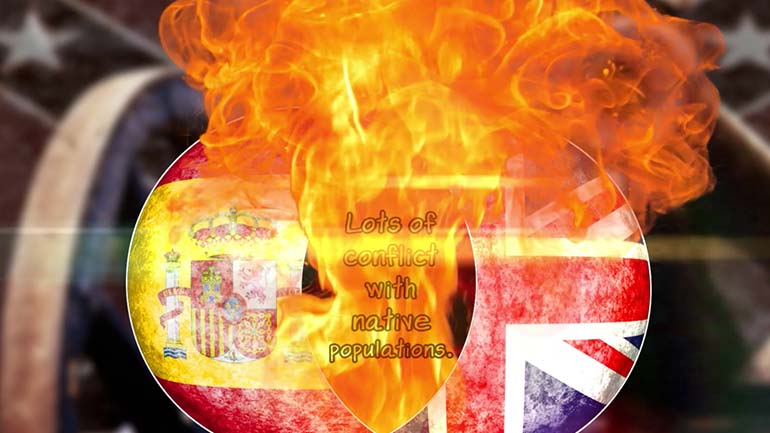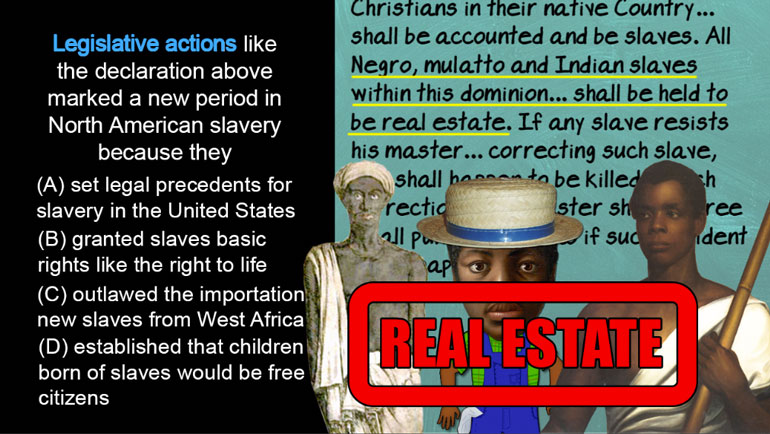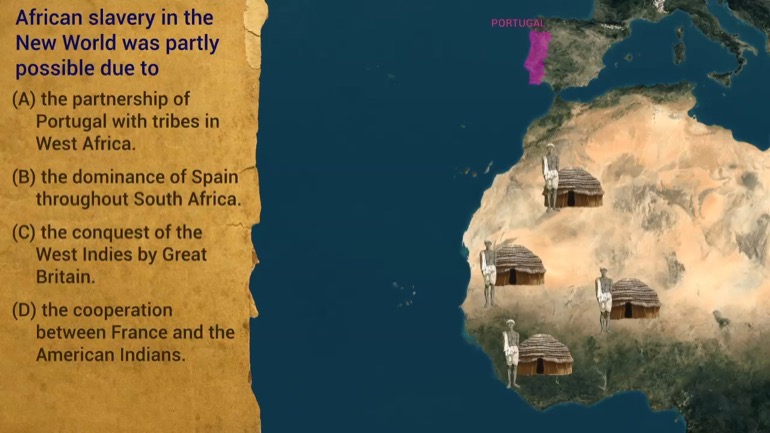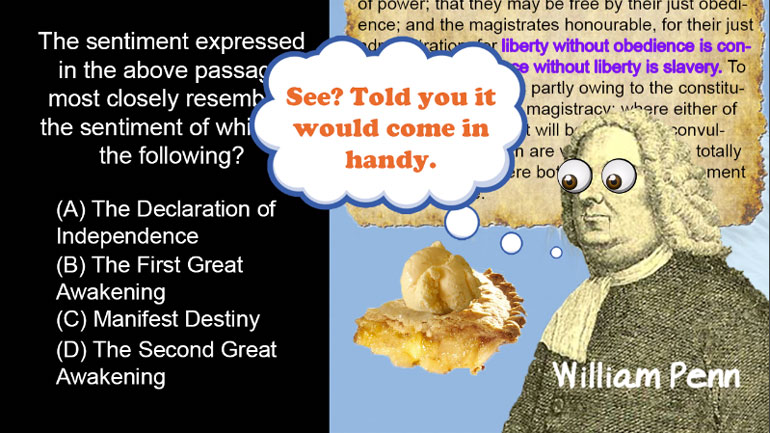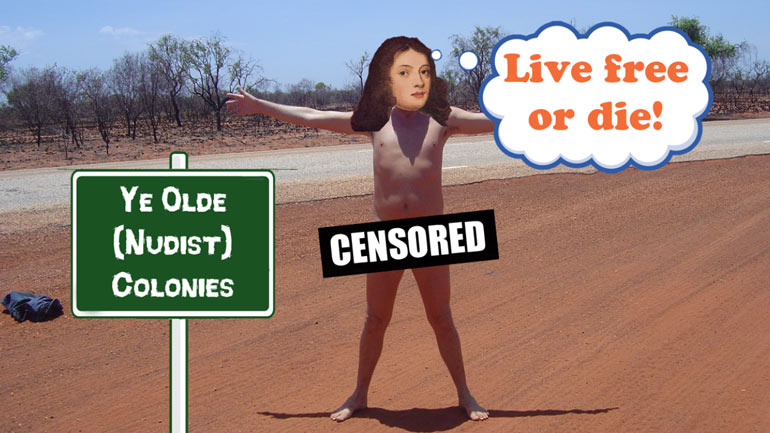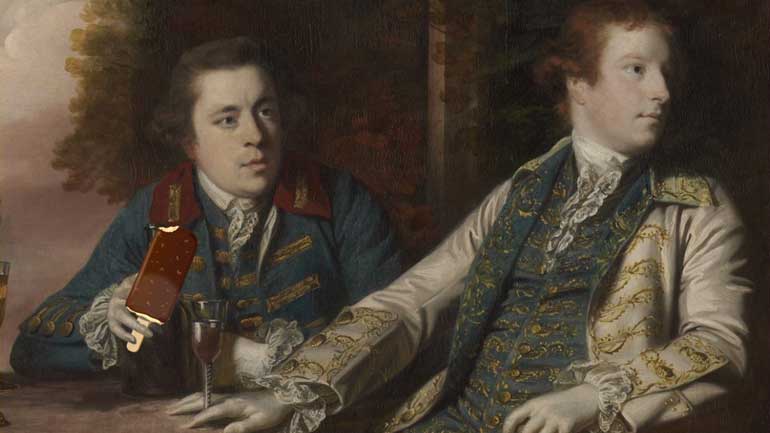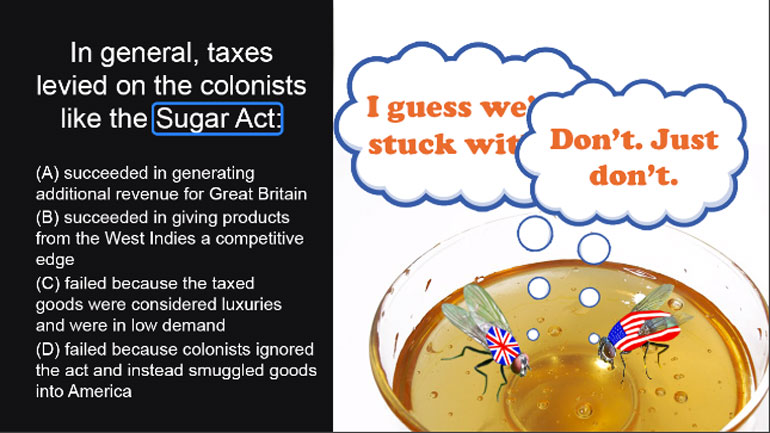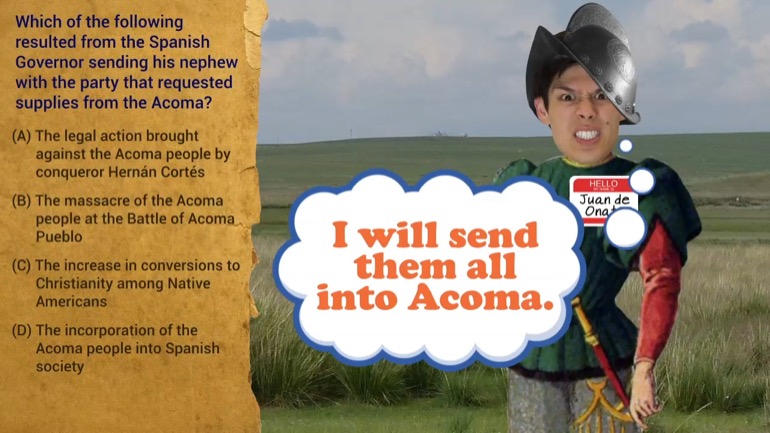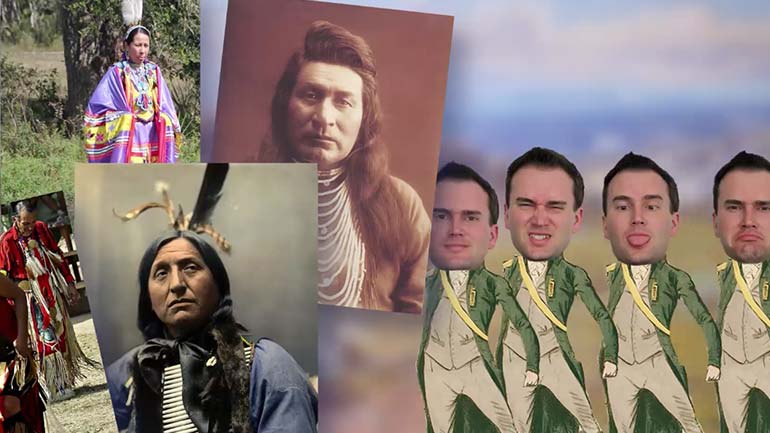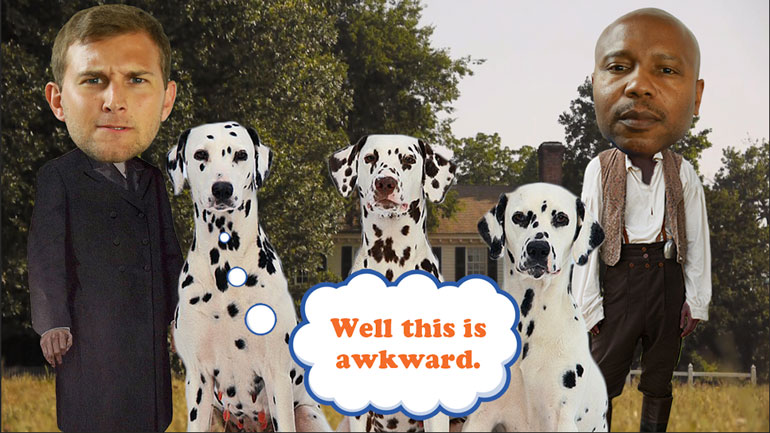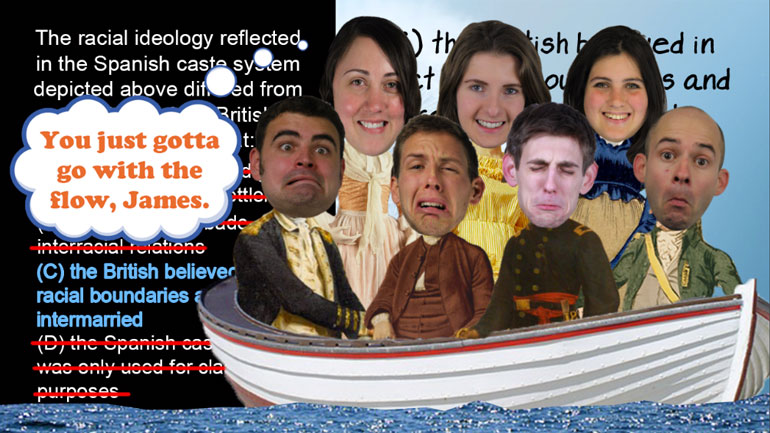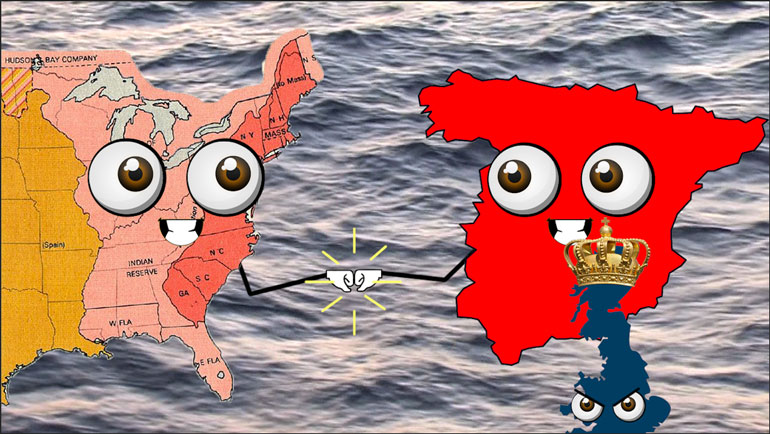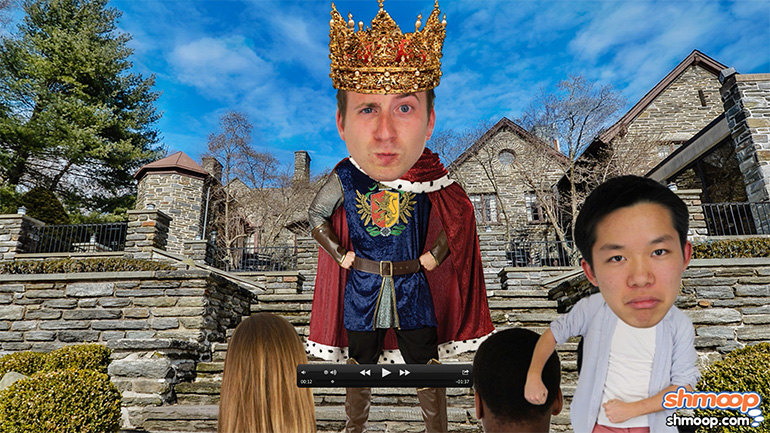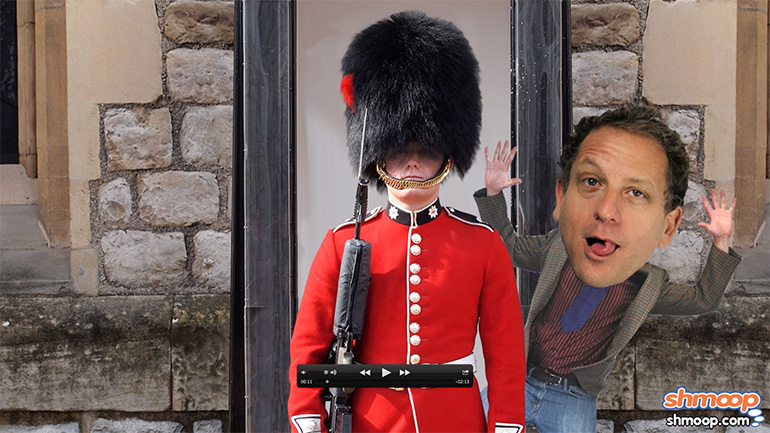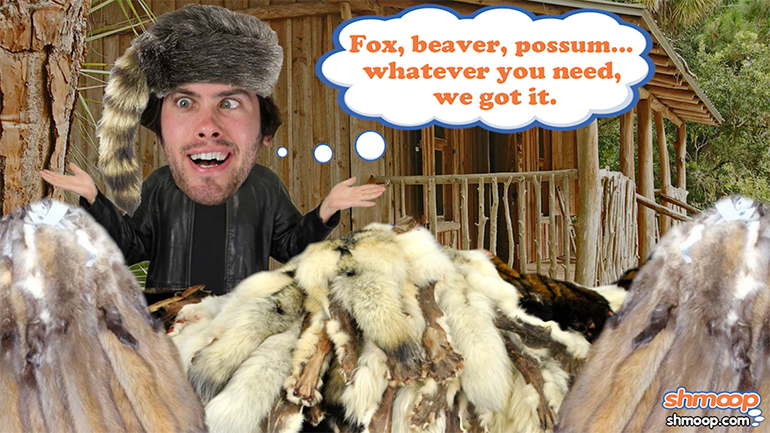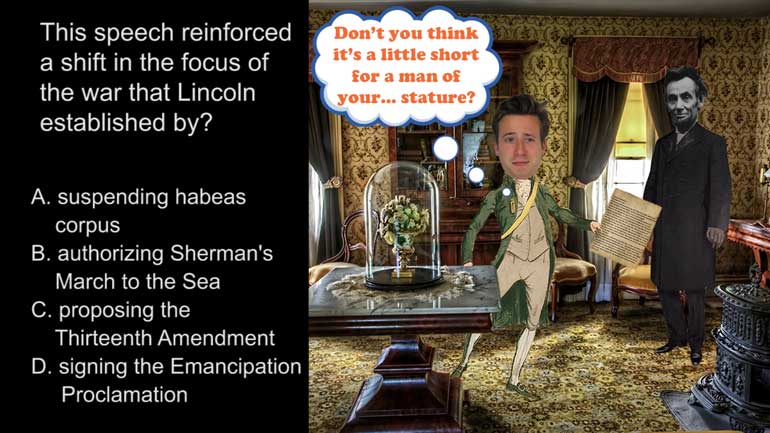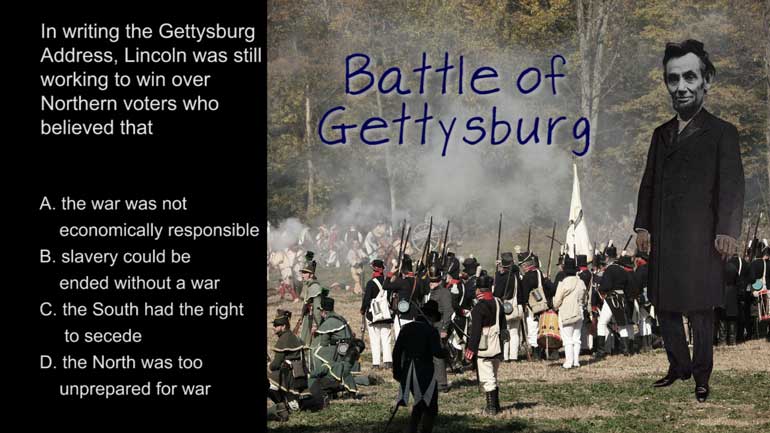ShmoopTube
Where Monty Python meets your 10th grade teacher.
Search Thousands of Shmoop Videos
Period 2: 1607–1754 Videos 15 videos
AP U.S. History 1.2 Period 2: 1607–1754. Conflicts between Spanish colonizers and native populations, compared to conflicts between British colon...
U.S. AP U.S. History 1.3 Period 2: 1690-1754. Legislative actions like the declaration above marked a new period in North American slavery becau...
AP U.S. History 1.4 Period 2: 1690-1754. Which of the following environmental factors did not contribute to the rise of the West Indies slave trade...
AP U.S. History 4.2 Period 2: 1607-1754 222 Views
Share It!
Description:
AP U.S. History 4.2 Period 2: 1607-1754. The process described in the excerpt most directly led to which of the following 18th-century developments in the British colonies?
Transcript
- 00:00
Thank you We sneak and here's your smoke too Sure
- 00:05
brought to you by wedding cake Make sure you have
- 00:07
a tissue handy for it though it always ends up
- 00:10
in tears All right check the following passage first absolute
- 00:14
my eyes from the slave ship cargo described carried aboard
Full Transcript
- 00:19
All right And here's the question the process described in
- 00:21
the excerpt most directly led to which of the following
- 00:24
eighteenth century developments in the british colonies and hear your
- 00:27
schedule answers emergency racial social auntie All right well the
- 00:34
excerpt is about slavery right So what this question is
- 00:38
really asking is which of these answer choices was directly
- 00:42
caused by the slave trade If we want to be
- 00:45
more specific about it which we always do the questions
- 00:48
asking which of these choices described something that slavery cause
- 00:52
in eighteenth century british colony's Well answer d definitely didn't
- 00:56
pay attention during the ap u s history Allah shmoop
- 01:00
slavery may have brought british people in african people into
- 01:03
away more regular contact than ever before but this doesn't
- 01:06
exactly mean the interracial wedding bells were ringing Let's take
- 01:10
a moment to be grateful that things have changed since
- 01:12
then because social progress is almost always good going across
- 01:16
that and knowing all of that makes it especially easy
- 01:19
to cross out see when it comes to the british
- 01:20
colonist putting racial and acceptance in the same sentence is
- 01:24
questionable at best unless there is a big j k
- 01:27
in there somewhere in those days you were recognized as
- 01:29
either black or white Anything in between was definitely not
- 01:34
socially acceptable going cross outside Now let's look at a
- 01:38
yeah slavery did result in the abolitionist movement simply because
- 01:41
without slavery the abolitionists well they wouldn't have had anything
- 01:44
to abolish But the thing is the abolitionist movement didn't
- 01:48
reach its peak until after the american revolutionary war when
- 01:52
ideas of freedom and natural rights became more ingrained in
- 01:54
the american conscious going cross out a on that leaves
- 01:58
us with option b The influx of african slaves gave
- 02:01
rise to plenty of stereotyping and some intense categorizing of
- 02:05
the races So it seems that bee is the correct
- 02:07
answer Would somebody get the cake a tissue already We're
- 02:10
tired of every wedding we go to having salt flavored 00:02:13.44 --> [endTime] cake icing
Related Videos
AP U.S. History Exam 2.45. The journey shown on the map was an example of...what?
AP U.S. History Exam 2.26. This speech reinforced a shift in the focus of the war that Lincoln established by...what?
What did the Spanish messengers bring with them to North America? Hint: you probably wouldn't be thrilled to get this for your next birthday.
AP U.S. History Diagnostic 24. How did the United States choose containment over the National Security Council Report in Latin America?
AP U.S. History Exam 2.25. In writing the Gettysburg Address, Lincoln was still working to win over Northern voters who believed that...what?
